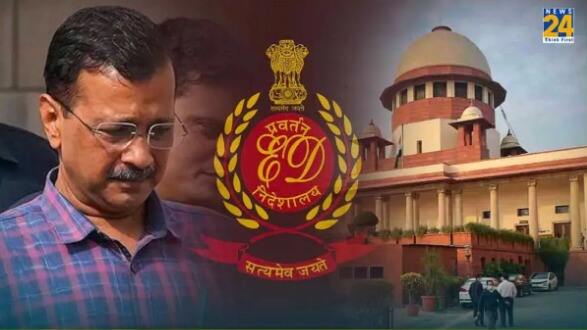Introduction
Arvind Kejriwal is the Chief Minister of Delhi and the founding leader of the Aam Aadmi Party (AAP). Known for his background as a former civil servant and his role in the India Against Corruption movement, Arvind Kejriwal has been a prominent figure in Indian politics, advocating for transparency and anti-corruption measures.
The Chief Minister of the National Capital Territory of Delhi, Arvind Kejriwal, made headlines as he became the first sitting chief minister in Indian history to be arrested. On 21st March 2024, around 09:00 pm IST, Arvind Kejriwal was taken into custody by the Enforcement Directorate, following his failure to respond to nine summons regarding the Delhi liquor policy money laundering case.
Background of the Delhi Liquor Scam
CBI Raids Deputy Chief Minister Manish Sisodia’s Residence
The raid conducted by the Central Bureau of Investigation (CBI) at the residence of Delhi’s Deputy Chief Minister, Manish Sisodia, along with 14 others, has sent shockwaves through the political landscape of the capital.
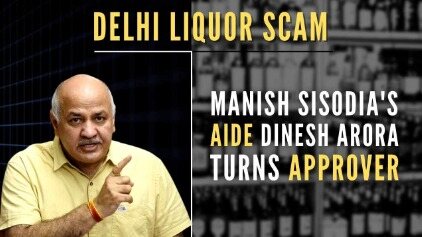
The investigation revolves around allegations of corruption in the implementation of the Delhi Excise Policy 2021-2022. The arrest itself occurred following a raid on Arvind Kejriwal‘s residence by the Enforcement Directorate(ED). Supporters and AAP workers gathered outside his residence, protesting the arrest. Arvind Kejriwal was remanded until 28th March 2024, remaining in the custody of the ED.
Despite his arrest, protests erupted across Delhi, with AAP supporters marching to the Prime Minister’s residence and BJP supporters demanding Kejriwal’s resignation at the Secretariat Building.
Changes to Delhi’s Liquor Policy
The Delhi Excise Policy 2021-2022 introduced several key changes:
- Introduction of private players into the market, marking the complete exit of the Delhi government from the liquor business.
- Increase in the number of liquor vends, with 849 vends awarded to private companies through open bidding.
- Introduction of discounts and extended hours for liquor sales to attract consumers.
- Permission for private liquor shops to deliver alcohol at home and remain open until 3 am.
- Guidelines were issued for the appearance of liquor shops to enhance the consumer experience.
These changes were aimed at eliminating the liquor mafia, increasing revenue for the government, and enhancing consumer convenience. The policy was met with both anticipation and scepticism from various quarters.
First Alarm
However, the policy soon came under scrutiny when Chief Secretary Naresh Kumar’s report highlighted financial irregularities and procedural lapses.
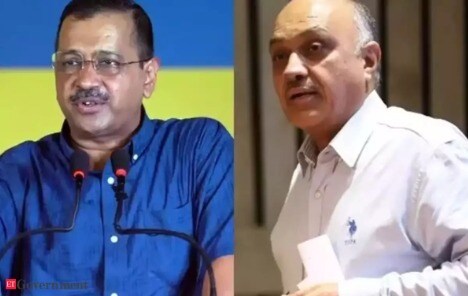
The report pointed out breaches of several statutory provisions and regulations, including the Government of National Capital Territory of Delhi (GNCTD) Act of 1991, the Transaction of Business Rules (ToBR) of 1993, the Delhi Excise Act of 2009, and the Delhi Excise Rules of 2010. It claimed that the liquor mafia was also granted benefits amounting to Rs 144 crores.
According to the report, Manish Sisodia waived off Rs 144.36 crores on licence fees owed by private liquor vendors under the pretext of the pandemic. Additionally, he allegedly caused losses to the Excise Department and provided benefits to liquor licensees by waiving the import pass fee of Rs 50 per beer case.
Previous Lt. Governor’s Disapproval
A major controversy erupted when it was noticed that retail liquor shops were opening in non-conforming areas, like unapproved markets in the city, where such activities were not permitted under the new policy. In response, a proposal was approved by the Delhi cabinet on November 5, 2021, to allow retail liquor vends to operate in non-conforming areas until suitable locations were identified.
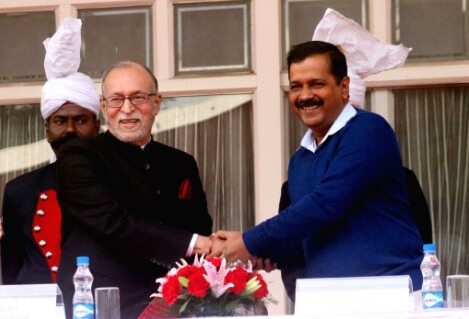
However, the Lt. Governor, Anil Baijal, raised several objections and recommended modifications to the new liquor policy. He expressed concerns about the eligibility criteria for different types of licences, the possibility of monopoly or oligopoly, and the inconsistency in licence categories. Baijal also suggested an action plan for government employees and corporations financially dependent on the liquor business, as government-run liquor shops were closing down.
U-turn on Own Stand
On July 22, 2022, the current Lt. Governor, VK Saxena, acting on the chief secretary’s report, recommended a CBI probe into the matter. Consequently, on July 29, Manish Sisodia withdrew the new liquor policy and reverted to the older policy, which permitted government-owned shops to sell liquor.
The corporations entrusted with this task included Delhi Tourism and Transportation Development (DTTDC), Delhi State Industrial and Infrastructure Development Corporation (DSIIDC), and Delhi Consumer’s Cooperative Wholesale Store (DCCWS). They were tasked with opening a total of 500 liquor vends from September 1, 2022.
Accusations and Counter-Claims
In response to the accusations, Manish Sisodia dismissed the corruption allegations and accused ex-Delhi Lt. Governor Baijal of changing his stance over opening liquor vends in unauthorized areas. He claimed that Baijal initially approved the proposal to open 849 shops across Delhi, including in unauthorised areas, but later changed his stand just two days before.
Domestic Reactions
The arrest of Arvind Kejriwal and its subsequent release sparked reactions both domestically and internationally. Domestic reactions included protests and resignations, such as that of Delhi Cabinet Minister Raaj Kumar Anand, who resigned from his ministerial position and the AAP, citing concerns over corruption. Opposition leaders voiced strong opposition, framing the arrest as part of an authoritarian trend under the current government.
International Reactions
Internationally, the arrest of Arvind Kejriwal drew attention from various quarters. The United Nations expressed hope for the protection of everyone’s rights during elections, emphasising the importance of a free and fair atmosphere.
The United States Department of State encouraged a fair and transparent legal process for Arvind Kejriwal, while Germany emphasised the importance of upholding democratic principles. However, the Indian Ministry of External Affairs dismissed international comments as interfering with the country’s judicial process.
Amnesty International condemned the arrest, along with the freezing of the Indian National Congress bank accounts, as a violation of human rights obligations, highlighting the need for India to uphold international standards.
Arvind Kejriwal’s Bail
Kejriwal’s Release and Conditions
The Supreme Court’s order enables Arvind Kejriwal to campaign in the national election until June 1. However, his release is temporary, and he will have to return to jail on June 2, as pre-trial court proceedings are ongoing. The court imposed several conditions on Arvind Kejriwal, such as restrictions on visiting his office and requiring approval from the capital’s governor for certain decisions as Chief Minister.
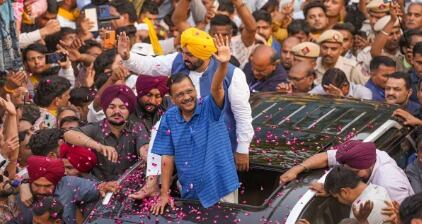
Supporters’ Reactions
Kejriwal’s supporters celebrated his release with enthusiasm, waving party flags and chanting slogans. Arvind Kejriwal, addressing his supporters, urged them to support his fight against what he perceives as authoritarianism in the current government.
Judicial Ruling and Opposition’s Response
Judges Sanjiv Khanna and Dipankar Datta emphasised the significance of the national election in their ruling, rejecting the prosecutors’ argument that Arvind Kejriwal would gain an unfair advantage. Opposition leaders welcomed the decision, viewing it as crucial for the ongoing election campaign.
Conclusion
Arvind Kejriwal‘s political journey in 2024, from his arrest to his interim bail, reflects the complexity and turbulence of Indian politics. His arrest by the Enforcement Directorate in connection with the Delhi liquor policy money laundering case marked a significant moment, making him the first sitting chief minister in India to face such charges.
Arvind Kejriwal‘s arrest sparked both domestic and international reactions, with supporters rallying behind him and opposition leaders criticising the government’s actions. The involvement of international organisations highlighted the significance of upholding democratic principles and human rights obligations.
The Supreme Court’s decision to grant interim bail to Arvind Kejriwal for campaigning in the national election until June 1 provided a temporary respite. However, the imposed conditions signify the ongoing legal battle and the complexities of the judicial process.
Overall, Arvind Kejriwal‘s political journey in 2024 is a testament to the challenges and controversies inherent in Indian politics, highlighting the need for transparency, accountability, and adherence to democratic principles. As the nation moves forward, the saga of Arvind Kejriwal‘s arrest and interim bail serves as a reminder of the constant struggle for integrity and justice in governance.
-ABHINASH PRITIRAJ
MUST READ:- BANKING SCAMS IN INDIA

